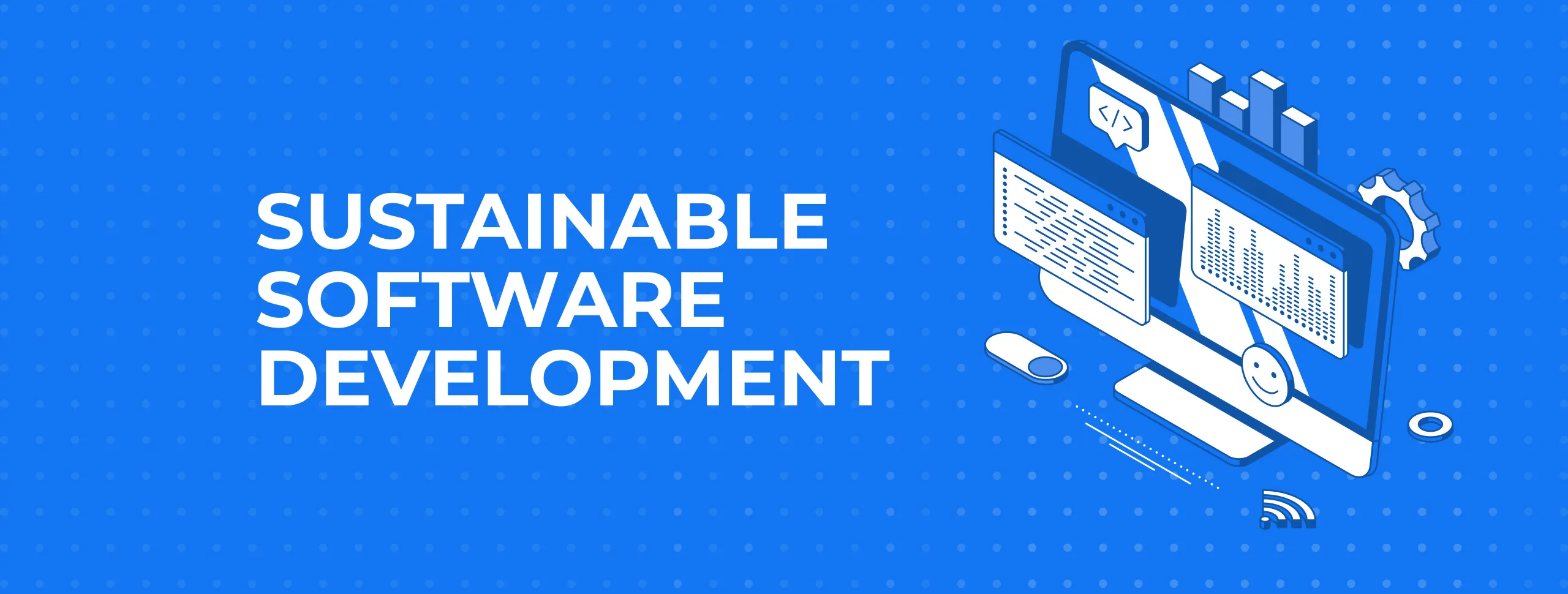
Sustainable Software Development: What Is It?

Table of contents
- Sustainable Software Design
- Sustainable Development Practices
- Green Computing Metrics
- Sustainable Cloud Computing
- Lifecycle Management and Decommissioning
- Conclusion
Sustainability is no longer confined to eco-friendly products or energy-efficient buildings; it extends to the digital realm as well. The software industry has recognized the need to reduce its carbon footprint and environmental impact. In this article, we will explore five essential ways to build sustainability into your software architecture and development practices.
Sustainable Software Design
Sustainable Software Design: Incorporating energy-efficient coding practices and optimizing resource usage in software architecture.
Design is the starting point for the development of sustainable software. Energy conservation and resource optimization are given priority in sustainable software design. The electrical power use of the hardware must be taken into account by programmers and architects. Software developers may considerably decrease the impact on the environment by streamlining resource-intensive operations, minimizing unused computations, and optimizing algorithms.
Sustainable software design guidelines
- Create carbon-efficient apps that extract the most value from each gram of carbon dioxide they release into the atmosphere.
- Considering that all software demands electricity-create devices that are energy-efficient.
- Utilize the least carbon-intensive electricity possible: it can be measured as the weight of carbon emitted for every unit of used energy.
- Avoid "planned obsolescence" by creating programs that can operate without reducing performance on outdated hardware.
- Run more of your workload on the few servers that are being used at their highest rates to maximize the hardware's power efficiency.
- Minimize the volume of data that is consumed and the distance that it must travel over a system.
- By including eco options that match your computer's requirements to times or locations where the availability of energy from renewable sources is high, you can create "carbon-aware" programs.
- Keep note of small improvements to your product's performance or pricing that reduce its carbon footprint.
These guidelines are applicable to anyone who's slightly connected to or has any role to play in the development or maintenance of software. They are also helpful for engineers and programmers. Depending on their particular roles, different people use these ideas in different practical manners in everyday situations.
Sustainable Development Practices
Sustainable Development Practices: Integrating sustainability into Agile and DevOps workflows.
Sustainability should be integrated into the heart of your development process. Agile and DevOps methodologies offer the flexibility to adapt and incorporate sustainable practices seamlessly. By including sustainability checkpoints in your development pipeline, you can ensure that eco-friendly principles are considered at every stage of your project. This includes sustainable coding standards, continuous monitoring, and iterative improvements to minimize environmental impact.
Examples of sustainable development
Solar Power
It is obvious that there is a revolution in sustainable energy taking place in the world, and it is fueled by the sun. This revolution ranges from little rooftop solar panels to enormous solar farms that may achieve the same generation capacity as a traditional power plant.
A huge amount of the pollution that a coal-fired power plant produces can be cut down by a solar farm. Additionally, it gets rid of harmful pollutants like mercury and Sulphur nitrous oxides, which are important causes of the air pollution that causes millions of early lives each year. In many regions of the world, solar technology is becoming more affordable and is currently cost-competitive with or less expensive than traditional power generation.
Wind Power
Since the first windmill was built in Persia from 500 to 900 AD, people have used the force of the wind. In many areas in the 21st century, energy produced by wind power is now cheaper than coal-generated electrical power.
Due to their low cost and minimal land footprint, wind turbines are an excellent option for power generation. Wind energy production can coexist with other land uses like farming, conservation, and recreation. Wind energy might considerably complement or replace entire grid systems as the cost of wind power generation falls and electricity transmission and storage infrastructure advances.
Water-saving appliances
We are starting to realize that freshwater is not as limitless as we once thought because many nations around the world are experiencing water stress. Showering, hand washing, and wastewater transportation require significant water consumption in the majority of facilities around the world.
Nevertheless, by using water-saving appliances, the volume of water needed for these fundamental services can be significantly decreased. Water-saving equipment includes double flushing toilets, toilet stops, and low-flow faucets and showerheads. Such fittings can be readily and economically integrated into already-existing structures or requested for brand-new construction projects.
Green Areas
Cities must have green areas, like forests, wetlands, parks, lakes, or similar eco systems, in order to be maintained sustainably. Since trees create oxygen-rich air and filter out pollutants from the air, these spaces are crucial for cooling cities. In addition to providing safer locations for exercise and pleasure, well-designed green spaces are essential for providing safer pathways for people who commute on foot or by bicycle.
Rotation of crops
Nowadays, industrial farming is used to generate the majority of our food items. The system is supported by massive farms that grow only one type of crop while using a great deal of of chemical-based fertilizers and synthetic pesticides. Agricultural industry is doing significant harm to the water, soil, air, and our climate.
The crop rotation method of farming is not new; rather, it is an old way of growing crops while using no chemicals.
Green Computing Metrics
Green Computing Metrics: Monitoring and lowering software's negative environmental effects by keeping track of data such as emission levels and use of energy.
You need to measure what you want to improve. You may gauge your software's impact on the environment by using green computing measures. Monitoring energy use, carbon emissions, along with other sustainable KPIs enables you to identify areas that need to be optimized. You can use platforms and tools that provide data on energy usage to make smart decisions regarding how to use resources and software.
Sustainable Cloud Computing
Sustainable Cloud Computing: Choosing green cloud and data center providers.
Online computing is a useful tool, yet it is crucial to pick green computing facilities and cloud service providers. Numerous cloud service providers are utilizing sustainable methods and making significant investments in renewable energy sources. You may dramatically lower your software's environmental impact by choosing sustainable cloud providers and structuring your apps to use resources effectively.
Lifecycle Management and Decommissioning
Lifecycle Management and Decommissioning: Appropriate hardware and software retirement.
Sustainability continues once software is put into use and lasts until the lifespan of a product is over. It's important to retire outdated software and hardware in a responsible manner. To preserve private information, think about recycling or reusing outdated equipment and make sure all data has been properly erased. Even after software is no longer being actively used, environmentally friendly procedures should be kept up.
Conclusion
As our world becomes increasingly digital, it's essential for the software industry to embrace sustainability. By incorporating energy-efficient coding practices, integrating sustainability into development workflows, tracking environmental metrics, choosing eco-friendly cloud providers, and responsibly managing the lifecycle of software and hardware, you can build software that not only serves its intended purpose but also minimizes its impact on the environment. Sustainability isn't just a buzzword; it's a responsibility that every software developer and architect should embrace for a greener and more sustainable future.
Need more information about our services?





